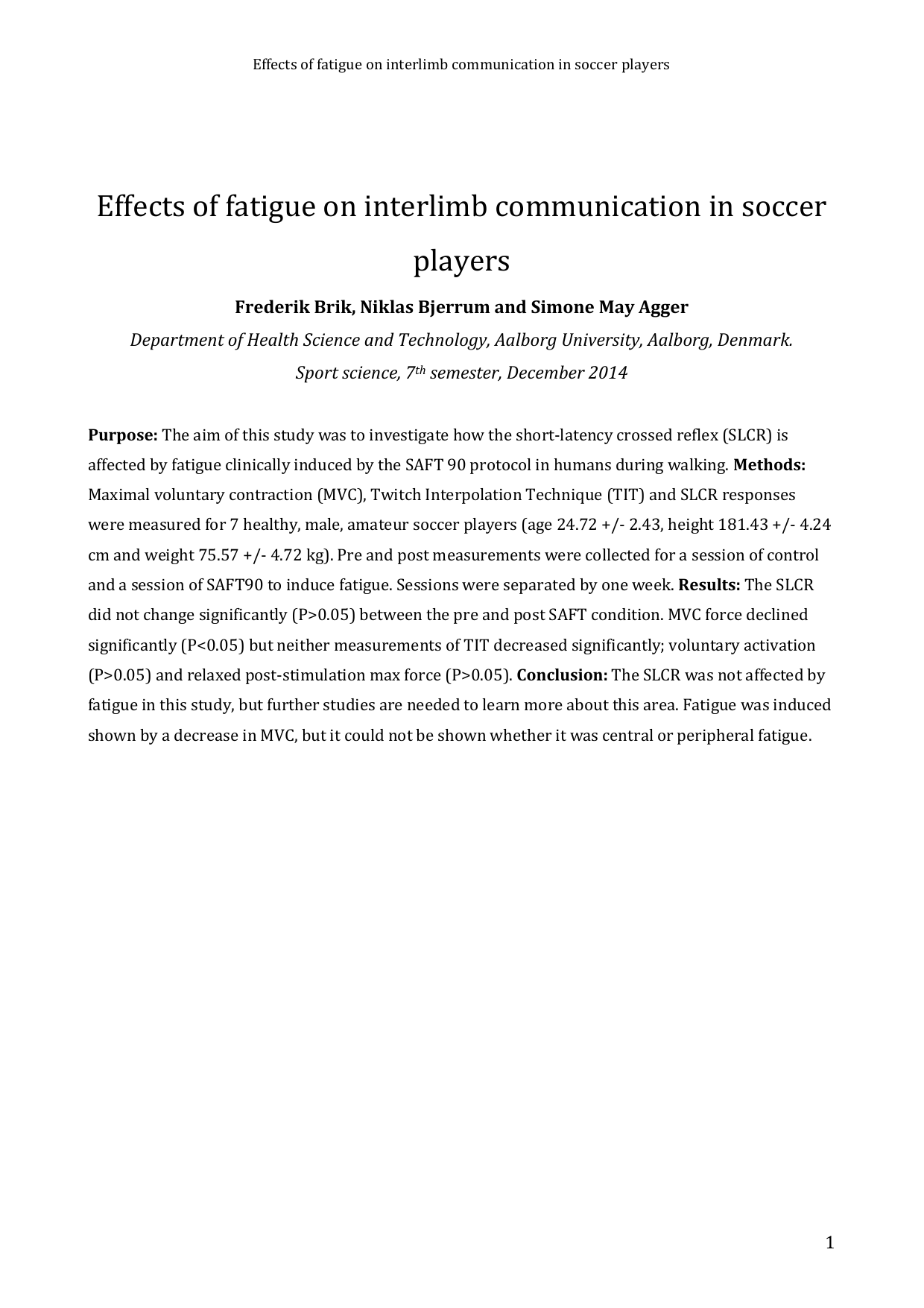
Effects of fatigue on interlimb communication in soccer players
Term
1. semester
Education
Publication year
2014
Submitted on
2014-12-17
Pages
42
Abstract
Purpose: The aim of this study was to investigate how the short-latency crossed reflex (SLCR) is affected by fatigue clinically induced by the SAFT 90 protocol in humans during walking. Methods: Maximal voluntary contraction (MVC), Twitch Interpolation Technique (TIT) and SLCR responses were measured for 7 healthy, male, amateur soccer players (age 24.72 +/- 2.43, height 181.43 +/- 4.24 cm and weight 75.57 +/- 4.72 kg). Pre and post measurements were collected for a session of control and a session of SAFT90 to induce fatigue. Sessions were separated by one week. Results: The SLCR did not change significantly (P>0.05) between the pre and post SAFT condition. MVC force declined significantly (P<0.05) but neither measurements of TIT decreased significantly; voluntary activation (P>0.05) and relaxed post-stimulation max force (P>0.05). Conclusion: The SLCR was not affected by fatigue in this study, but further studies are needed to learn more about this area. Fatigue was induced shown by a decrease in MVC, but it could not be shown whether it was central or peripheral fatigue.
Documents
